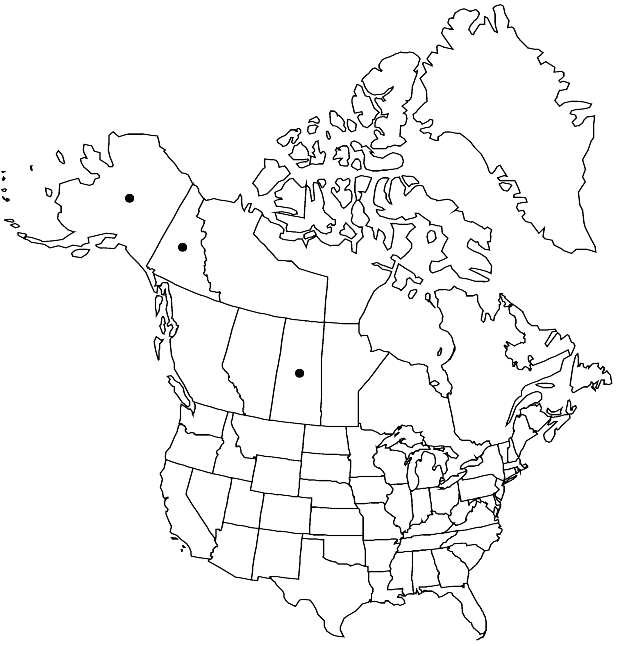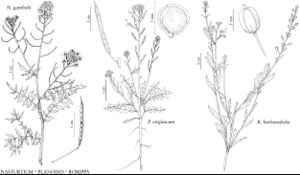Difference between revisions of "Rorippa barbareifolia"
J. Jap. Bot. 13: 137. 1937.
imported>Volume Importer |
imported>Volume Importer |
||
| Line 76: | Line 76: | ||
|publication year=1937 | |publication year=1937 | ||
|special status=Illustrated | |special status=Illustrated | ||
| − | |source xml=https:// | + | |source xml=https://bitbucket.org/aafc-mbb/fna-data-curation/src/2e0870ddd59836b60bcf96646a41e87ea5a5943a/coarse_grained_fna_xml/V7/V7_772.xml |
|tribe=Brassicaceae tribe Cardamineae | |tribe=Brassicaceae tribe Cardamineae | ||
|genus=Rorippa | |genus=Rorippa | ||
Latest revision as of 22:36, 5 November 2020
Annuals; (terrestrial or of wet habitat, not submerged); densely villous or sparsely hirsute at least basally, sometimes glabrate distally. Stems (simple from base), erect, branched distally, (2–)3–9.5(–11) dm. Basal leaves rosulate; (petiole 1–7 cm); blade margins lyrate-pinnatifid or subruncinate. Cauline leaves sessile; blade lanceolate to oblanceolate or oblong, 2.5–10(–15) cm × 4–25(–45) mm, base auriculate or amplexicaul, margins: proximal lyrate-pinnatifid, (lobes 2–7 on each side), laciniate, irregularly serrate, repand, or entire, distal undivided and entire or obscurely denticulate, (apex acute). Racemes considerably elongated. Fruiting pedicels ascending, straight, (2–)4–12(–14) mm, (glabrous or hirsute). Flowers: sepals spreading, oblong, 1.6–2.8 × 0.6–1.2 mm; petals yellow, obovate or spatulate, (1.5–)1.8–3(–3.5) × 0.7–1.8(–2) mm; median filaments 1.5–2.5 mm; anthers oblong, 0.5–0.6mm, (gynophore 0.3–0.8(–1) mm). Fruits silicles, straight, globose or subglobose, (2.5–)3.5–6(–6.5) × (2.3–)2.8–4(–4.3) mm; valves [(3 or) 4(–6), leathery, not veined], glabrous; (septum fenestrate at middle); ovules 60–85 per ovary; style (stout), 0.5–1(–1.4) mm. Seeds dark reddish brown, oblong-ovate, 0.5–0.7 mm (0.3–0.4 mm diam.), reticulate. 2n = 16.
Phenology: Flowering Jun–Aug.
Habitat: Forest borders, roadsides, waste grounds, moist areas, stream banks, gravel pits
Elevation: 100-700 m
Distribution

Sask., Yukon, Alaska, e Asia.
Discussion
Rorippa barbareifolia is readily distinguished from other species of the genus by having fruits consistently with more than two valves. Other species (e.g., R. calycina, R. palustris) occasionally show three-valved fruits, but these always appear with more, normal, two-valved fruits on the same plant.
Selected References
None.
